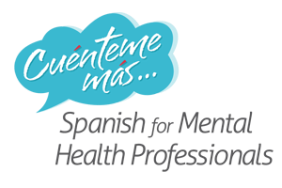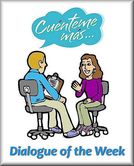by Alfonso M. López and Cynthia M. Braden, MFT
Many of our students are treating children and families in therapy, and have asked for help with vocabulary for play therapy. For this blog, we will be working with the Tú form as that is the correct form to use with children. This is an important distinction to study, as we usually recommend and teach the Usted form for working with adult clients. So, in this blog you will see verbs, compound tenses and reflexive constructions focusing on the Tú form.
Recognizing that play is a developmental process that needs exercising; using games, fantasy play, dolls and doll houses, paper crafts, "floortime" or “floor play”, are appropriate interventions developmentally to use with children of all ages.
Play therapists may find it challenging to find the right words and phrases to use during the play itself, such as introducing the play options and working with the physical aspects of the play therapy session.
Managing the Session Logistically
|
|
Physical Aspects
|
|
|
|
|
|
|
|
|
|
|
|
|
|
|
|
|
| |
Reflecting Feeling
On another level beyond the languages, therapists are simultaneously implementing therapeutic interventions based on the developmental abilities of the child and the theoretical orientation of the therapist. Our programs often focus on using Person-Centered interventions as they are congruent with the Cultural Concepts of Respeto, Personalismo y Desahogarse, are relatively simple to learn, and do not require perfect Spanish to be an effective Spanish-speaking therapist.
|
|
|
|
|
|
Giving Reinforcement for Pro-Social Behavior
Let’s review some simple words and phrases commonly used for giving praise or reinforcement and talking to children about their behavior.
|
|
|
|
|
|
|
|


 RSS Feed
RSS Feed



